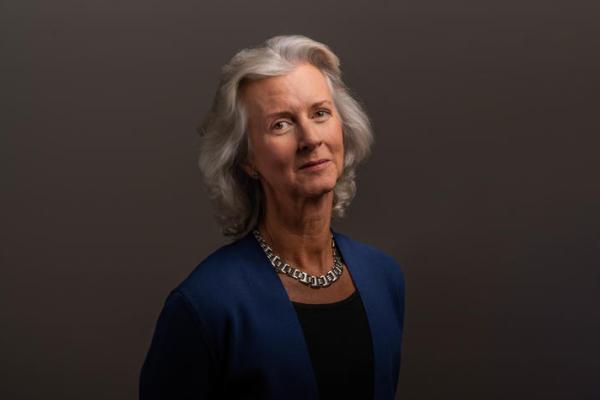Empowering Victims through Research
“If we're going to remedy a problem, we need to know all the different facets of it.”
That’s how Claire Renzetti, the Judi Conway Patton Endowed Chair in the University of Kentucky Center for Research on Violence Against Women, and professor and chair of UK Department of Sociology in the UK College of Arts and Sciences, approaches her research.
“I've just always focused on people who are on the margins,” Renzetti said. “So I always felt like in order to fully understand a project, you need to study groups that are understudied, or that maybe don't have a common experience because one size doesn't fit all.”
Renzetti’s research focuses on violence against women, particularly violent victimization experiences of socially and economically marginalized groups of women, including women living in poverty and women in same-sex intimate partnerships. Her current research focuses on human trafficking, and services for trafficking victims. She also examines the effects of religiosity and religious self-regulation on intimate partner violence perpetration and victimization. Additionally, she is evaluating the potential benefits of a therapeutic horticulture program for residents of a battered women's shelter.
“I think the most challenging part [of doing research on intimate violence] is to build trust, and I always feel like the way to do that is to sort of develop some reciprocity in the relationship — to let them get to know me,” Renzetti said. “I'm asking somebody to tell me really horrible things that happened to them and I'm a total stranger to them. And so they really have a right to know who I am and to ask me questions and to feel comfortable with me.”
Renzetti encourages her students to take this personal approach to their research as well.
“When I talk to students who want to study violence against women, or some aspect of violent behavior, and they want to collect data, I always tell them that the research project is both subjective and objective,” she said. “I try to tell them to talk about research ‘participants’ and not ‘subjects.’ And I try to emphasize not to do what we call ‘drive-by’ research: go in, get your information, leave. And then you publish it and you get the accolades, but you've left the people who gave you this — your livelihood — with nothing. You should always contribute something, and not assume it will trickle down.”
Renzetti has become an internationally recognized scholar on gender and crime issues, and her research and community engagement have received regional and national recognition. This includes the Saltzman Award for Contributions to Practice from the Women and Crime Division of the American Society of Criminology. The award recognizes a criminologist whose professional accomplishments have increased the quality of justice and the level of safety for women.
“When I go to an organization of practitioners, or a nonprofit that serves survivors, someone comes up to me and says ‘I read this book that you wrote, and it had a tremendous impact on me. I suddenly recognized what was going on in my life and I sought help.’ And that's really important to me because, ultimately, I want to produce knowledge that's useable to people in their everyday lives and improve their quality of life,” Renzetti said.
This video feature is part of a monthly series called ‘“see discovery:” The People Behind Our Research.’ The videos, produced by UKNow and REVEAL, highlight the important work being conducted at the University of Kentucky by telling the stories of our researchers. The idea is to discover and share what motivates our faculty, staff and students to ask the questions that lead to discovery.
More from this series People Behind Our Research The scientists and scholars at the University of Kentucky are remarkable people. Some of them have a very personal connection to field they have chosen: a family member battling addiction or disease. Some of them began their journey based on curiosity. A drive to find out why the world works the way it does. What they all have in common is a passion to ignite progress and partner across fields and with communities to confront, head on, the most profound challenges. Research can do that, and our researchers tell you why and how. Subheading Why do we want you to meet our researchers?
Credits
Produced by Alicia P. Gregory, videography/direction by Chad Rumford and Ben Corwin (Research Communications)



